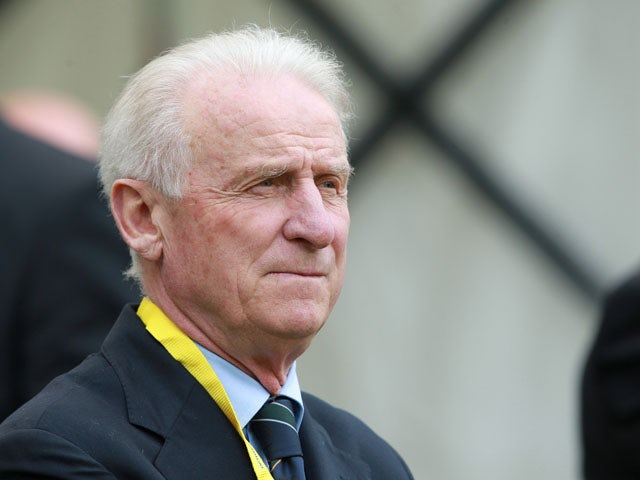It was announced on Wednesday that Giovanni Trapattoni had left his position as the manager of Republic of Ireland by mutual consent after over five years in charge of the side.
It brought an end to the Italian's 64-match reign in charge, where he had registered 26 victories and fallen to 16 defeats, the most recent coming against Austria on Tuesday evening.
But despite a tame conclusion, the 74-year-old did lead Ireland to Euro 2012, so can Trapattoni's lengthy spell be deemed a success?
The former Juventus, Bayern Munich and Italy boss took charge after Steve Staunton's less-than-inspiring tenure came to an end, and he soon displayed the depth of his experience by leading his new side through their World Cup qualifying group unbeaten in 10 matches.
However, he was helpless to prevent the heartbreak that was to follow, as Ireland were denied a place in the finals after they were ousted by France in the playoffs, with William Gallas netting the decisive goal after Thierry Henry appeared to handle the ball in the build-up to the extra-time winner.
While the loss had a significant effect on the nation, it only acted as a catalyst ahead of the next attempt to progress to the finals of a major tournament, and once again, they made the playoffs, after finishing second in their group to Russia.
This time, Trapattoni's team made no mistake, as they produced a scintillating performance to defeat Estonia in the first leg, before completing a 5-1 aggregate success.
 © Getty Images
© Getty Images
The draw for Euro 2012 provided the Republic of Ireland with perhaps the toughest opposition that they could have asked for, being put into a group with Spain, Italy and Croatia.
Their opening game with Croatia would likely dictate whether they would retain a realistic hope of making the knockout stages, but a 3-1 setback meant that they required a minimum of four points from the two eventual finalists of the tournament.
As many Irish fans feared, their side were outplayed by both international superpowers, and the Republic of Ireland left the tournament with just one goal to show for their efforts.
After their drab showing in Poland, Ireland lost experienced duo Shay Given and Damien Duff after they made the decision to retire from international football, and the lack of suitable replacements was exposed as the Republic were fortunate to beat Kazakhstan in their opener World Cup qualifier.
A heavy 6-1 defeat at home to Germany furthered that realisation, and failure to beat Austria at home planted the seeds of doubt in the minds of Irish supporters that it was time for a change.
The recent setbacks against Sweden and Austria acted as the final nail in the coffin for the veteran coach, but he should leave his position with his head held high after playing his part in revitalising football in the country.
He provided the nation with their first experience of a major tournament for 10 years, and despite criticism over his management style, he got the most out of a limited team, with Given, Duff and Robbie Keane the only three players that would have walked into international teams at a similar level.
His departure marks a new era for the Republic of Ireland, but he leaves the team in a better state than he found them, with his successor left with the task of developing a side ahead of the qualifying campaign for the European Championship in 2016.







